Health
Ask a doc: 'Why do my gums bleed after I brush my teeth, and what should I do about it?'
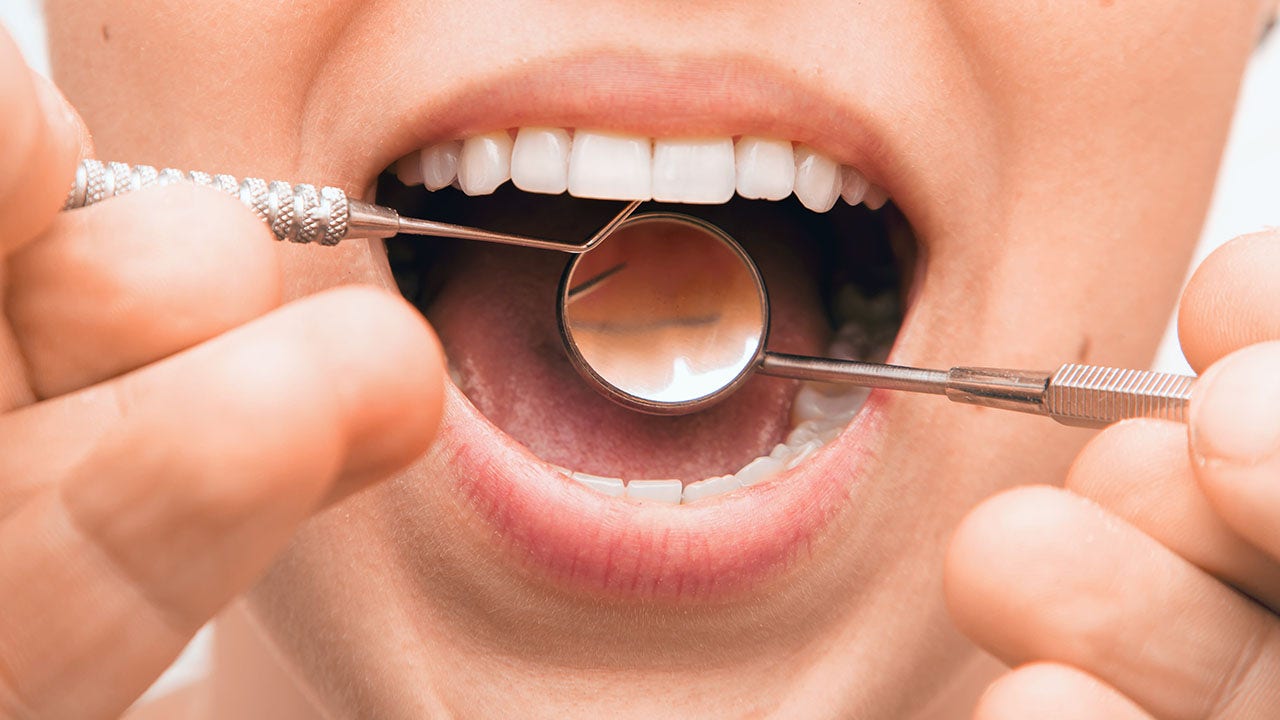
If you notice your gums are bleeding after you brush your teeth, you could have other symptoms as well, such as tenderness and swelling.
Oral health is very important — and if your gums bleed, you should bring this up with your dental professional.
“Gums may start to look swollen and turn reddish in color prior to gum bleeding,” said Alice G. Boghosian, DDS, consumer adviser and spokesperson for the American Dental Association. She practices at Hagopian & Boghosian Dentistry in Glenview, Illinois.
IS MOUTH BREATHING BAD FOR YOUR TEETH? DENTAL PROFESSIONALS SHARE RISKS AND REMEDIES
“If you notice blood in the sink when you brush your teeth, and you experience it for more than two weeks, you should consult your dentist, as it’s possible you may be at risk for gum disease.”
Fox News Digital interviewed dental experts about how to stay healthy, protect your pearly whites and your gums — read on.
What causes bleeding gums?
There are many potential reasons for bleeding gums, medical experts say.
If your gums bleed after you brush your teeth, you should discuss this with your dental professional, experts advise. (iStock)
“In some cases, bleeding gums can be a sign of gingivitis, the early stage of gum disease,” said Sally J. Cram, DDS, consumer adviser and spokesperson for the American Dental Association. She is a periodontist with a practice in Washington, D.C.
“Gum disease, also known as periodontal disease, is an infection of the gums and bone that surround your teeth, and is caused by a buildup of plaque.”
BE WELL: STOP GRINDING YOUR TEETH FOR BETTER DENTAL HEALTH
In addition to gums that bleed easily, symptoms of gum disease in its early stages may include red, swollen and tender gums as well as bad breath, she said.
Many women develop bleeding and swollen gums during puberty, pregnancy, menopause and during their monthly menstrual cycle.
Additionally, Dr. Cram said many women develop bleeding and swollen gums during puberty, pregnancy, menopause and during their monthly menstrual cycle.
“This is due to increased hormone levels, which make the gums more sensitive to plaque and bacteria,” she said.
PRACTICE GOOD ORAL HYGIENE TO PROTECT YOURSELF AGAINST PERIODONTITIS
Another potential cause of bleeding gums? It might be a new flossing routine, which may cause gums to bleed at first as they get used to the cleaning between the teeth, said Dr. Cram.
“This goes away on its own within about a week,” she said.
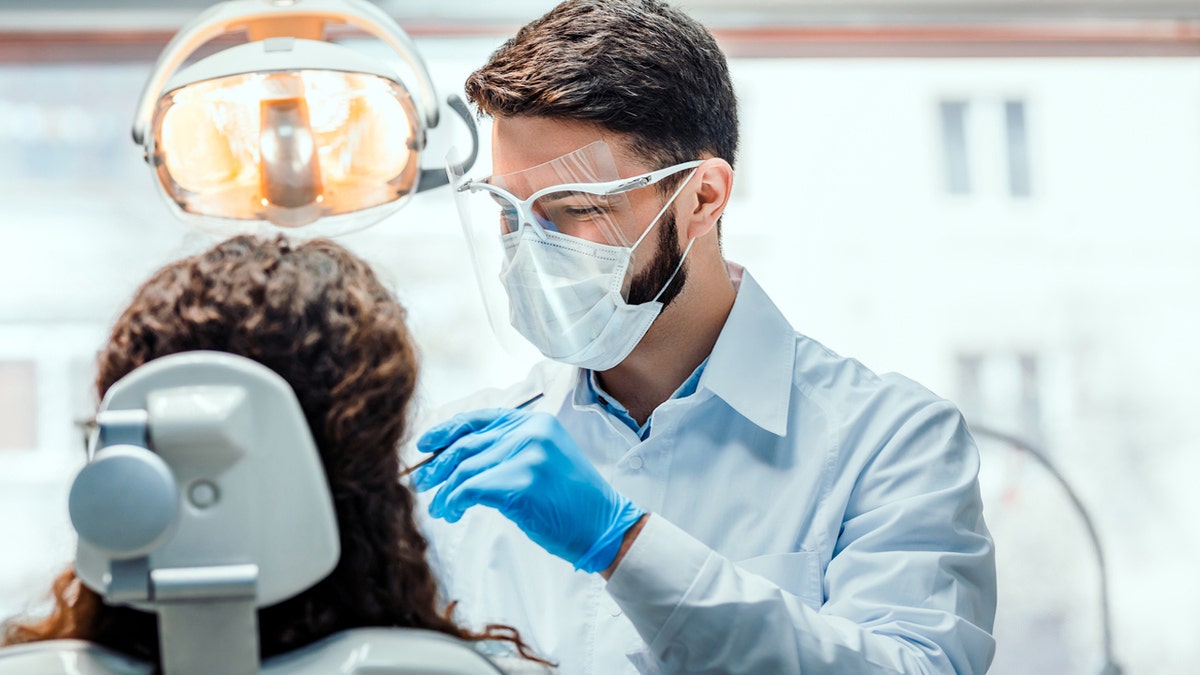
In addition to bleeding gums, if you have symptoms like bad breath or swollen, tender gums, and have experienced symptoms for longer than two weeks, it’s best to visit your dentist or periodontist. (iStock)
Lastly, brushing too hard or incorrectly may cause bleeding gums.
“It’s always wise to ask your dentist and dental hygienist to suggest the right toothbrush for you and to review how to use it correctly,” Dr. Cram suggested.
THESE ARE THE WORST DENTAL MISTAKES YOU CAN MAKE FOR YOUR TEETH
Many causes are temporary, like implementing a new flossing routine, or can easily be adjusted, like brushing too hard or using the wrong toothbrush.
Yet if you have additional symptoms like bad breath or swollen, tender gums, and you have experienced symptoms for longer than two weeks, you should visit your dentist or periodontist, Dr. Cram advised.
What are other factors that can put patients at risk?
Dr. Boghosian with Hagopian & Boghosian said these issues may also raise the risk of gum disease:
- Poor dental care
- Smoking or chewing tobacco
- Genetics
- Crooked teeth that are hard to keep clean
- Pregnancy
- Diabetes
- The use of certain medications, including steroids, some anti-epilepsy drugs, cancer therapy drugs, some calcium channel blockers, and oral contraceptives
Why should bleeding gums be brought up to a dentist?
It’s possible that bleeding gums can be a symptom of gum disease, an infection of the tissues that surround and support your teeth.
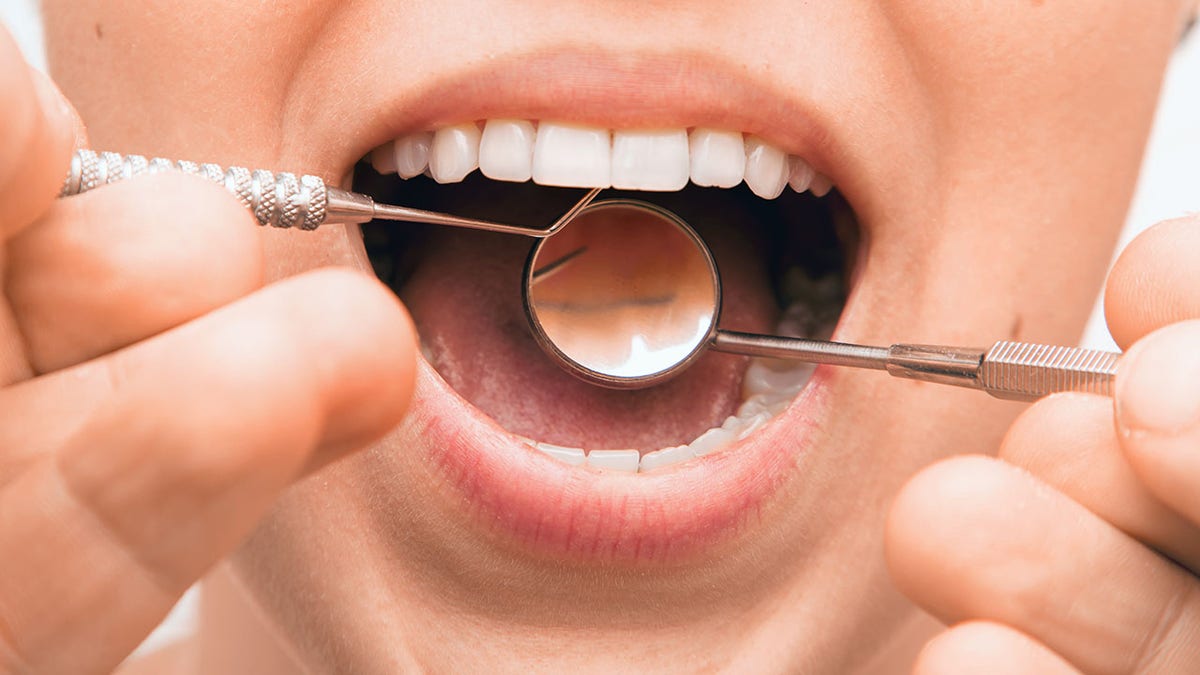
“Bacteria in the mouth and gum disease have been implicated in higher risks of oral cancer — and although it is not very common, persistent red, bleeding gums can also be a sign of certain blood disorders such as leukemia.” (iStock)
“Gum disease, or periodontal disease, is a major cause of tooth loss in adults,” periodontist Dr. Cram said.
Additional warning signs of gum disease, she said, include red, tender gums; gums that have begun to pull away from the teeth; persistent bad breath; permanent teeth that are loose or separating; any changes in the way your teeth fit together when you bite; or any changes in the fit of partial dentures.
DENTISTS REVEAL WHY YOU SHOULDN’T BRUSH YOUR TEETH IN THE SHOWER
“If these symptoms persist for two weeks, you should visit your dentist or periodontist,” Dr. Cram cautioned.
When can bleeding gums signify a more severe medical issue?
Research between systemic diseases and periodontal diseases is ongoing, said Dr. Cram.
“While a link is not conclusive, some studies indicate that severe gum disease may be associated with several other health conditions such as diabetes or stroke,” she indicated.
“Bacteria in the mouth and gum disease have also been implicated in higher risks of oral cancer, and although it is not very common, persistent red, bleeding gums can also be a sign of certain blood disorders such as leukemia.”
Regular dental checkups and periodontal exams are advised.
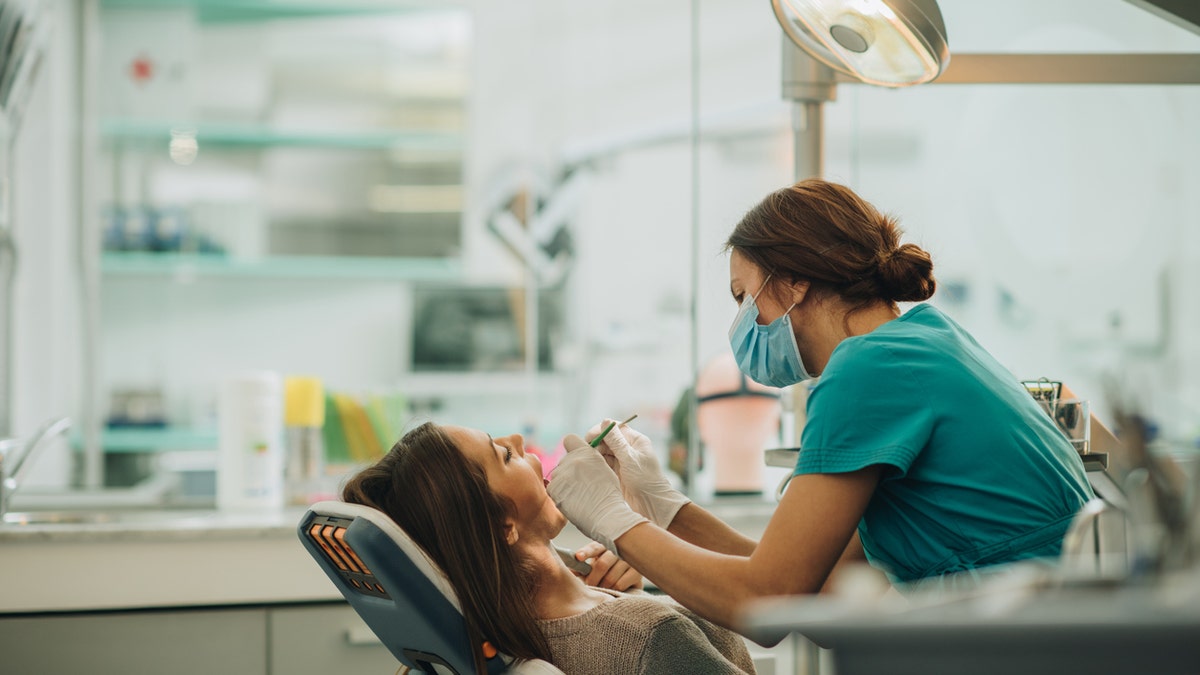
“It’s important to brush your teeth twice a day, clean between your teeth daily, eat a balanced diet, schedule regular dental visits and avoid smoking or chewing tobacco.” (iStock)
What will a dentist do to evaluate?
Treatment of periodontitis can be non-surgical or surgical.
Treatment methods depend upon the type of disease and how far the condition has progressed, Boghosian at Hagopian & Boghosian said.
What can people do at home?
Good dental care at home is essential to help keep periodontal disease from becoming more serious or recurring.
CLICK HERE TO SIGN UP FOR OUR HEALTH NEWSLETTER
“To help prevent periodontal disease, it’s important to brush your teeth twice a day, clean between your teeth daily, eat a balanced diet, schedule regular dental visits and avoid smoking or chewing tobacco,” Boghosian recommended.
For more Health articles, visit www.foxnews.com/health.

Health
What Happens If You Eat Eggs Every Day? Nutritionists Share the Benefits

Sign Up
Create a free account to access exclusive content, play games, solve puzzles, test your pop-culture knowledge and receive special offers.
Already have an account? Login
Forgot your password?
Get back to the Sign In
Use left and right arrow keys to navigate between menu items.
Use escape to exit the menu.
Health
Ask a doctor: ‘I swallowed a bug — now what should I do?'
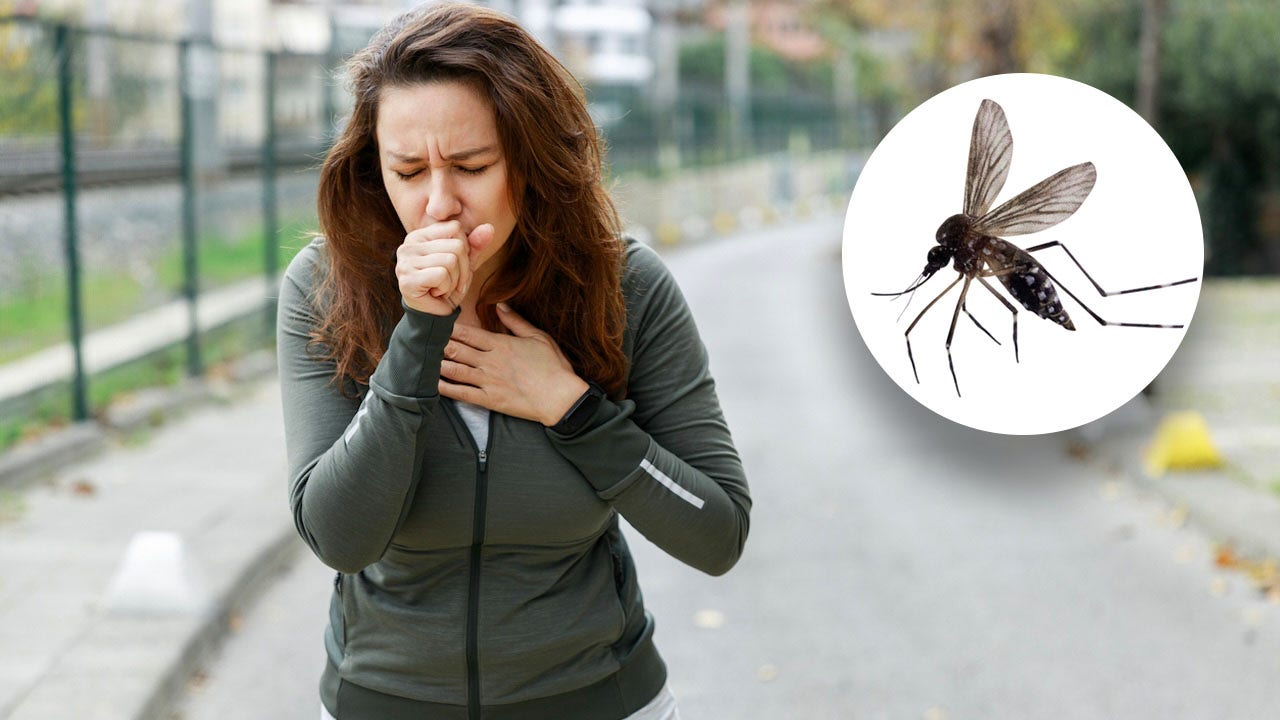
Most people have experienced that moment of discomfort when they realize a bug has wound up where it shouldn’t be — in their windpipe.
That includes Taylor Swift, who on more than one occasion has accidentally swallowed a bug while performing on stage in front of thousands of people.
It can be a startling and somewhat disgusting occurrence — but is this dangerous, or just a nuisance?
LOCAL DENGUE FEVER CASES CONFIRMED IN FLORIDA KEYS, SPREAD BY MOSQUITO BITES
Dr. Raj Dasgupta, a quadruple board-certified physician in California, shared with Fox News Digital the true impacts of accidentally swallowing a bug, and the best thing to do if it happens.
“Swallowing a bug can often happen accidentally when you’re eating or drinking outside, or if a bug flies into your mouth,” Dasgupta, who serves as chief medical advisor for Fortune Recommends, told Fox News Digital via email.
Dr. Raj Dasgupta, a quadruple board-certified physician in California, discussed the impact of accidentally swallowing a bug — and the best thing to do if it happens. (Sleepoplis)
“It can also happen if you’re talking or laughing outdoors. Sometimes it might even happen indoors if bugs are in your food or drink and you don’t realize it.”
ASK A DOCTOR: ‘HOW CAN I PREVENT SCARRING FROM BUG BITES AND POISON IVY?’
Swallowing a bug is usually not dangerous, Dasgupta noted.
“The stomach’s digestive acids usually break down the bug, and it is passed out of the body without causing harm,” he said.
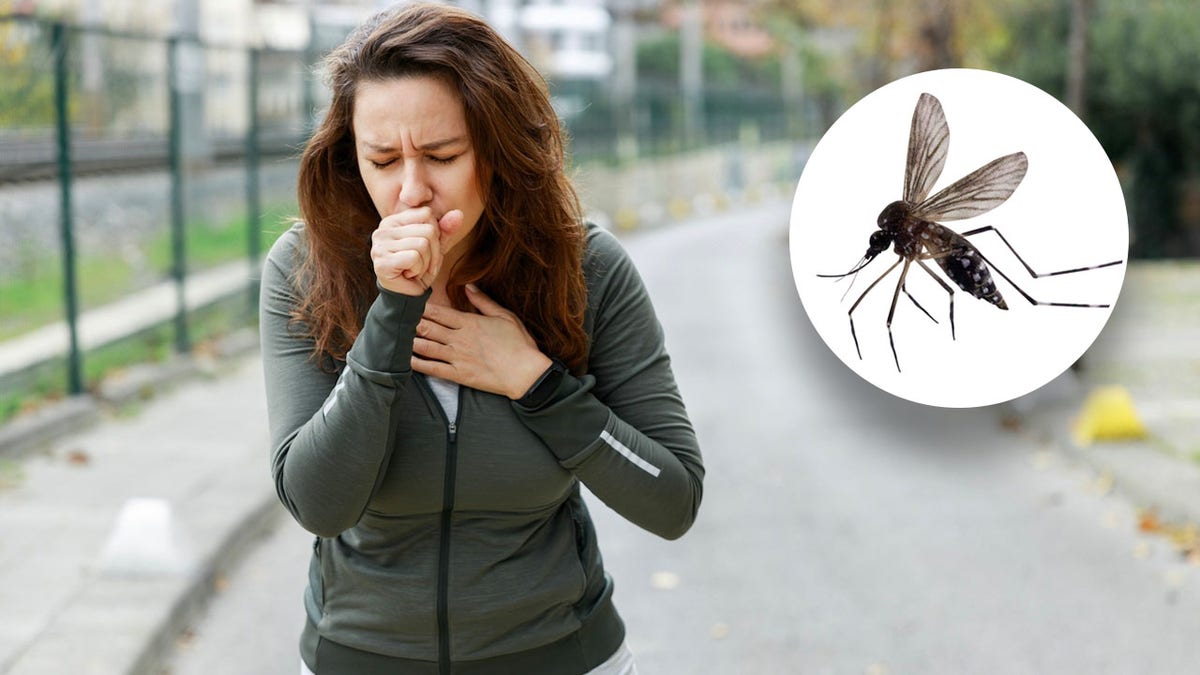
“Swallowing a bug can happen accidentally when you’re eating or drinking outside, or if a bug flies into your mouth,” the doctor told Fox News Digital. (iStock)
If the bug carries harmful bacteria or parasites, however, it could cause gastrointestinal issues or allergic reactions, according to the doctor.
The type of bug can make a difference, he said.
“Bugs like beetles or ants are less of a concern, but bugs that are known to spread diseases — such as mosquitoes — might be riskier.”
If you happen to swallow a bug, drinking some water can help wash it down, Dasgupta said.

Taylor Swift has announced the accidental swallowing of bugs, mid-concert, on more than one occasion. (Marcelo Endelli/TAS23/Getty Images for TAS Rights Management)
“If you start feeling sick, like abdominal pain, vomiting or nausea, keep an eye on your symptoms,” the doctor said.
If you have severe stomach pain, ongoing vomiting, trouble breathing, or swelling, rash or itching, Dasgupta said to see a doctor.
CLICK HERE TO SIGN UP FOR OUR HEALTH NEWSLETTER
“If you know the bug could have diseases or if you have health conditions that might complicate things, it’s a good idea to get checked out to be safe,” he added.
For more Health articles, visit www.foxnews/health
Some bugs — including grasshoppers, beetles, termites, mealworms and even stink bugs — are actually considered edible in certain countries, and are prepared and eaten as part of meals, according to WebMD’s website.
Health
“I’m a Dietitian, and Here’s Why an Overly Restrictive Diet Can Backfire”

Sign Up
Create a free account to access exclusive content, play games, solve puzzles, test your pop-culture knowledge and receive special offers.
Already have an account? Login
Forgot your password?
Get back to the Sign In
Use left and right arrow keys to navigate between menu items.
Use escape to exit the menu.
-

 World1 week ago
World1 week agoOne dead after car crashes into restaurant in Paris
-

 Midwest1 week ago
Midwest1 week agoMichigan rep posts video response to Stephen Colbert's joke about his RNC speech: 'Touché'
-

 News1 week ago
News1 week agoVideo: Young Republicans on Why Their Party Isn’t Reaching Gen Z (And What They Can Do About It)
-

 Movie Reviews1 week ago
Movie Reviews1 week agoMovie Review: A new generation drives into the storm in rousing ‘Twisters’
-

 News1 week ago
News1 week agoIn Milwaukee, Black Voters Struggle to Find a Home With Either Party
-

 Politics1 week ago
Politics1 week agoFox News Politics: The Call is Coming from Inside the House
-

 News1 week ago
News1 week agoVideo: J.D. Vance Accepts Vice-Presidential Nomination
-

 World1 week ago
World1 week agoTrump to take RNC stage for first speech since assassination attempt















